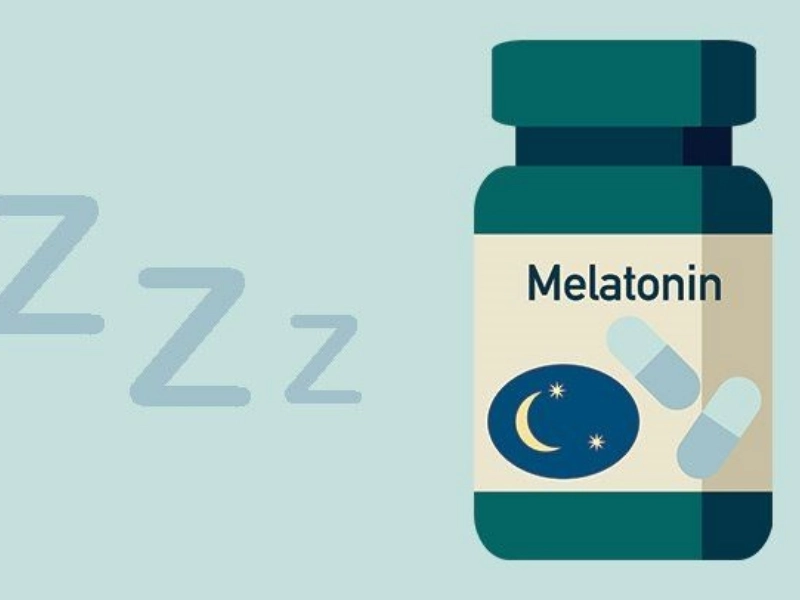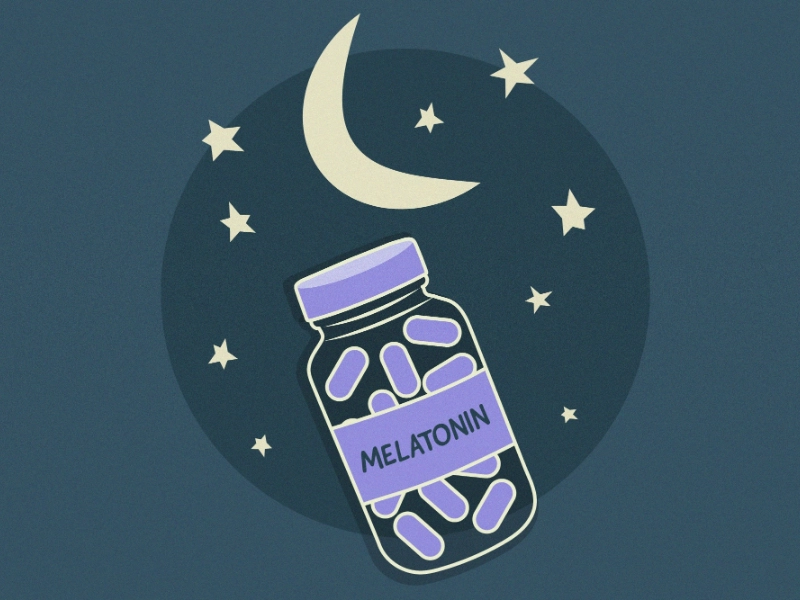Short-term use of melatonin, such as to treat delayed sleep phase syndrome (DSPS) or assist with jet lag, is safe. However, it should only be used under a specialist's supervision.
Extended usage is not advised. Instead, experts advise modifying your sleeping patterns. To enhance sleep quality, for instance, restrict your exposure to light after dark and keep electronics out of your bedroom.

For those who have trouble falling asleep, melatonin works well in tiny dosages to shorten the time it takes to fall asleep and improve the quality of their sleep. Still, it doesn't work for most sleep disorders that lead to insomnia. Actually, using melatonin for an extended period of time can make it harder to identify the real reason for your sleep problem and raise your chance of adverse effects.
Additionally, taking melatonin for sleeplessness brought on by a chronic illness—like Parkinson's or Alzheimer's—is not a smart choice. Because melatonin interacts with the brain and other systems, such as the immune system and metabolism, taking it for certain illnesses may potentially make the symptoms worse.

Though additional research is required, some studies have suggested that melatonin may help with other sleep issues, such as the insomnia associated with autism spectrum disorders or attention deficit hyperactivity disorder. If your child is on stimulant medications like ibuprofen, melatonin may also help with sleep difficulties related to ADHD or ASD. However, it's crucial to discuss melatonin with your child's doctor before administering it.
Melatonin isn't advised for persistent sleeplessness, though. The American Academy of Sleep Medicine and the American College of Physicians' practice guidelines state that it has not been shown to be safe or effective for long-term usage. Rather, they advocate for more tried-and-true therapies like cognitive-behavioral therapy.

Experts disagree on whether taking melatonin every night is necessary to have a decent night's sleep. In the short term, it's usually regarded as safe, and even at large doses, there's little chance of major negative effects. It doesn't sedate you, and it won't affect your typical sleeping patterns or daytime functioning.
However, prolonged use may be harmful, so it's preferable to use it under a doctor's supervision. For example, it might interfere with some medications, such as blood thinners and anti-epilepsy ones. In certain cases, it might also result in headaches and vertigo. It may also develop into a habit, leading to the misconception that melatonin is necessary for restful sleep. Because of this, many sleep specialists advise against using a daily melatonin supplement in favor of attempting other, more effective strategies for treating insomnia, such as modifying one's lifestyle and undergoing cognitive-behavioral therapy.

Make sure your surroundings are sleep-friendly by shutting off all electronics at least an hour before bed and keeping the lights down, in addition to taking melatonin. Additionally, maintaining a regular bedtime and wake-up time every night—even on the weekends—will help you better control your circadian cycle.